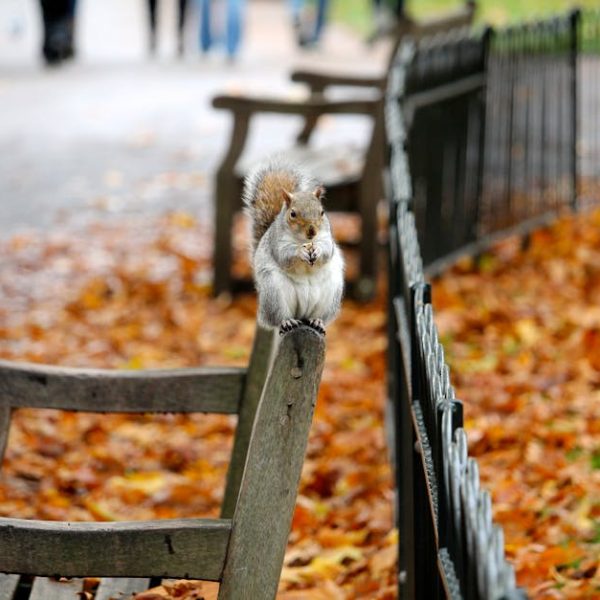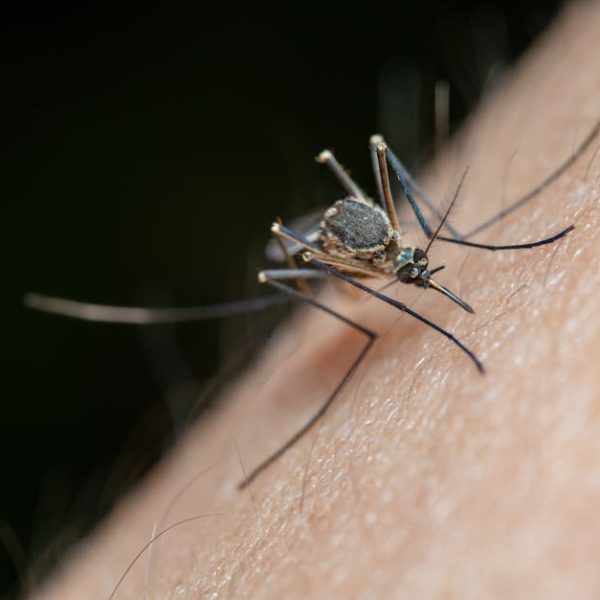The scent of a skunk wafting through your yard is a dilemma that no homeowner wants to face. So how can you employ simple techniques to keep skunks from making your yard their favorite hangout place? Let’s delve into this.
1. Maintaining Your Yard Cleanliness
Cleanliness is an effective discouragement for skunks. Skunks are scavengers by nature, and any sign of food scraps or easily available pet food could be an open invite. Ensuring your yard’s cleanliness includes eliminating food sources, securely storing trash away, and being mindful not to leave pet food outside.
Here’s a brief yard cleanliness checklist:
1. Regularly remove fallen fruits from your yard.
2. Ensure trash cans have tight-fitting lids.
3. Avoid leaving pet food outdoors, especially overnight.
The pros of a clean yard are threefold; reduced food sources for skunks, reduced hiding places, and increased general appeal of your yard. On the downside, sticking to the cleanliness regime requires some commitment and diligence, but the results are certainly worth it!
2. Nesting Lightings and Water Sprinklers
Did you know that well-placed lightings and water sprinklers can deter skunks from your yard? Skunks are nocturnal and are often shy from brightly lit spaces. On the other hand, a sudden burst of water can startle and deter skunks.
Your lighting shouldn’t create light pollution or become annoying to your neighbors, so opt for motion-activated lights. When installing sprinklers, consider electronic ones with infrared motion detectors for effective results.
Comparing electronic vs manual sprinklers, electronic ones are hands-down the winner for their convenience and better skunk deterrence. However, they may require a higher upfront investment and continual power supply.
3. Using Skunk Repelling Products
Another method in your skunk deterrent toolbox is skunk-repelling products, such as granules, sprays, or electronic devices that emit sound waves skunks detest. When choosing repellents, consider their environmental impact and opt for non-toxic, eco-friendly ones.
The key to using these products is to follow the manufacturer’s guidelines to use them effectively.
4. Fencing your Yard
Believe it or not, the simple but old-school method of fencing your yard can be crucial in keeping skunks away. Skunks, despite being good climbers, prefer not to climb. Therefore, a sturdy fence could be a good deterrent.
A proper fence should have no gaps or openings and should extend a foot or so below the ground to prevent skunks from burrowing under.
In the wooden fencing vs metal fencing debate, metal fencing takes the crown for its durability and resistance to damage.
5. Seeking Professional Pest Control Assistance
When all else fails, it’s time to call the professionals. Skunk problems can sometimes be too overwhelming for a homeowner, especially if there’s a skunk den in your yard or under your house. Professional pest control services have the right equipment, expertise, and knowledge to deal with skunks safely and humanely.
Generally, professionals would inspect your property, identify the problem, and propose solutions. These could range from simple measures like installing a one-way exclusion door to trapping and relocating skunks.
While there are numerous pest control services out there, you should choose one that specializes in skunk removal and ensures safe and humane practices.
Remember, the cheapest service might not always be the best in terms of efficacy and kindness towards the animals.
6. Using Natural Skunk Deterrents
Natural deterrent methods for skunks are a great eco-friendly and budget-friendly option that deserves recognition. For a start, skunks detest strong odours. You can use this to your advantage by planting skunk-hating plants like lavender and mint.
If you’re more hands-on, you can concoct a homemade skunk deterrent spray using ingredients such as chili pepper, cayenne pepper, and dish soap. Remember to spray this mixture around your yard, particularly around the places where you’ve spotted skunks.
The clear pro of using these natural deterrents is that they’re environmentally friendly. However, the cons include that these solutions require constant maintenance and that weather conditions may affect their effectiveness.
7. Adopting a Pet that Scares Skunks Away
Having a pet can add a layer of protection against skunks intruding into your yard. While pets like dogs and cats may not directly scare skunks away, their presence, their movement, and their scent can deter skunks.
However, before getting a pet solely for this purpose, keep in mind that pets need care, attention, and love above all. Also, be aware that skunks carry diseases that can harm your pet, so never encourage direct confrontation. Ensure your pets are always updated with their vaccines to stay safe from potential skunk-transmitted diseases.
The fight against skunks invading your yard is an ongoing one. With these simple techniques—ranging from maintaining cleanliness to adopting a pet—you can effectively keep skunks at bay. So roll up your sleeves, choose a few of these methods, and take your yard back from the furry invaders!
Key Takeaway:
- Maintaining cleanliness in your yard reduces inviting elements for skunks.
- Strategic use of lightings and water sprinklers can deter skunks from your yard.
- Various eco-friendly skunk-repelling products are available in the market and can be used effectively.
- Fencing is an old-school yet effective method to keep skunks at bay.
- Professional pest control assistance can be sought when skunk invasion becomes overwhelming.
- Natural skunk deterrents such as certain plants or homemade sprays can also be used.
- Adopting pets can add an extra layer of protection against skunks, provided their safety is assured.
As we venture into maintaining our yards skunk-free, remember that every effort, no matter how small, contributes to a larger impact. Consistency and diligence are essential to achieve long-lasting effects. Keep exploring the best practices, experiment with different methods, and customize your approach for the best results. Remember that the health and safety of your family, pets and the environment are paramount.
FAQs
Q: What are some signs that indicate a skunk is present in my yard?
A: Signs of skunk presence might include a strong odor, small, cone-shaped holes in your lawn, and damaged plants or crops.
Q: Can loud noises scare away skunks?
A: Yes, loud and sudden noises can indeed startle and scare away skunks. However, frequent exposure might make them habituated, reducing the effectiveness of this method.
Q: Are there any specific times at which skunks are more active?
A: Skunks are nocturnal creatures, which means they’re most active during night time. This is why it is most likely to spot a skunk in your yard after dusk.
Q: How can I ensure the safety of my pet while using it as a deterrent for skunks?
A: Never encourage direct confrontation. Always keep your pet’s vaccines up to date, and consider keeping them indoors during the night when skunks are most active.
Q: Can skunks be harmful to humans?
A: While skunks generally avoid humans, they can defend themselves when threatened. Skunk spray can cause irritation, and they can carry diseases like rabies. It’s best to avoid direct contact with skunks.
Feel free to share this article with others who might find it helpful. For more insights and tips, explore other articles on our website.






